Painting Materials
By Joseph Weinzettle
My painting medium is stand oil and turpentine (below). Stand oil is thick and slow drying. I found its qualities suited for expressing Florida humid climate in landscape paintings.
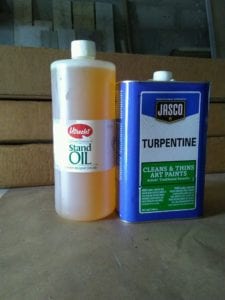
I mix medium into a smaller portable containers for working en plein air. I carry a selection of brushes, mostly bristle, some synthetic or sable to the painting site.
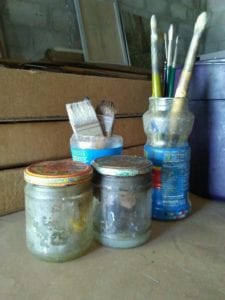
My palette is limited. I work with primaries – a couple blues, three reds and two yellows (below). I favor transparent colors, to allow the ground and underdrawing to come through. I usually don’t carry paint tubes to site locations. After a few sittings, I have a color scheme in mind, and I mix secondaries or tertiaries at home.
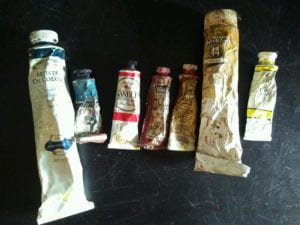
When use white, I tend to mix Titanium and Zinc (below). I don’t like the coldness of Titanium for the Florida climate, and Zinc, although warmer, is known to become brittle with age.
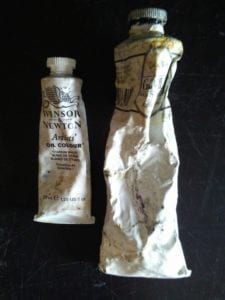
I carry my paint supplies in a bucket, which fits inside a larger utility bucket.
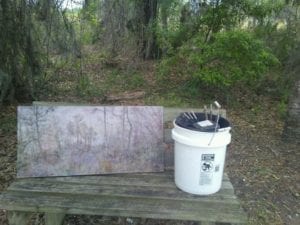
The utility bucket is then used as a seat while painting. The palettes are re-used plastic food containers.
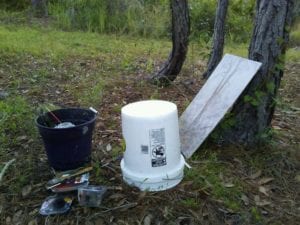
I’ve learned to keep my materials and supplies compact, practical for transporting to site locations. Reaching some sites require longer walks (a mile is long walk when carrying a painting support and supplies). Weather conditions may require rapid work and breaking down a set up quickly. If rain is light, I’ll usually work through it. My plein-air working methods developed over years of trial and error.


